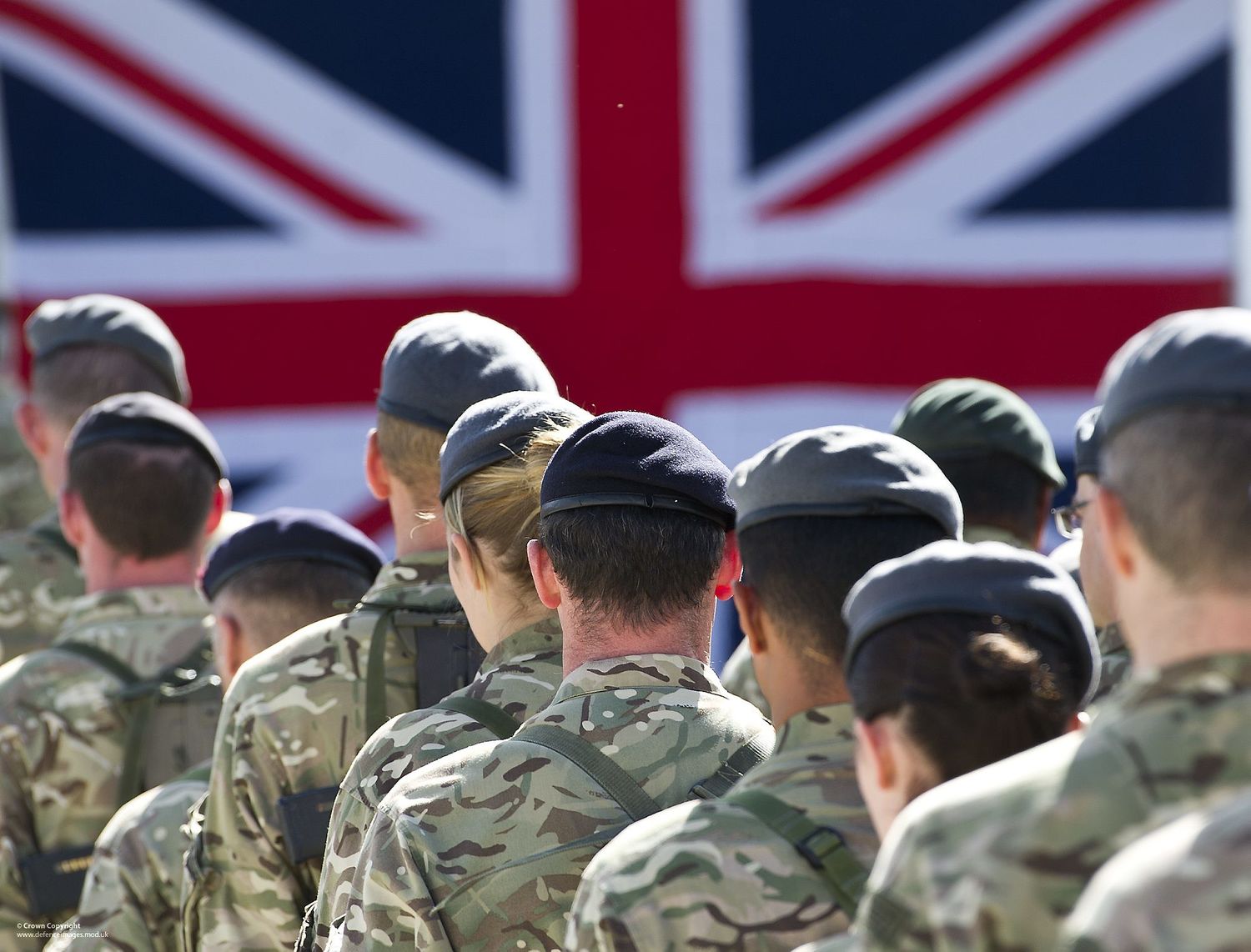Rising from the rubble of the global financial crisis, nations across the world anticipated the late 2010s and early 2020s as an opportunity to rebuild curtailed budgets. In contrast to regions such as the US and China, most countries in Europe cut defence budgets to cover some of the costs of the crisis, despite already low pre-crisis defence expenditures. Evidently, conflicting cultural and political notions of defence were at play and, although a major economic downturn was fairly probable, governments seemed to be underprepared.
Slightly over a decade later came a crisis of very different origin, which had also been forecast, but had been overlooked more profoundly as it was the territory of epidemiologists, rather than economists. Or so it seemed, until the COVID-19 pandemic began taking financial tolls of unanticipated proportions, leading to a forecasted 5.2% decrease in global GDP in 2020 – ‘the deepest global recession in decades’. As the battle against an invisible enemy continues to unfold, countries must once again tackle large budget deficits. In a war waged by struggling healthcare systems, defence spending is once again on the line – but this time, it extends beyond Europe. For example, preliminary trends in South Korea – praised highly for its swift medical response to the pandemic – indicate that funding for disaster relief related to the outbreak mostly came from the reallocation of defence budgets – a momentous decision from a country with ongoing cross-border conflict.
“A profound destabilisation of homeland security systems may imminently be added to the secondary challenges elicited by the pandemic”
Given that the South Korean model has yielded an apparently rapid road towards economic recovery, other governments are likely to follow suit. With the potential of a global downturn in defence spending on the horizon, a profound destabilisation of homeland security systems may imminently be added to the secondary challenges elicited by the pandemic. On the other hand, there is a prevailing argument that a dramatic diversion of human and financial resources may reduce both the capacity and willingness to wage war, and thus result in a potentially more peaceful world. The prevalence of either of these conflicting scenarios will depend on a cascade of governmental decisions taken as the health situation evolves.
A focus on mitigation, adaptation and innovation, such as vaccine efforts and updated workplace policies could shift national priorities, including the perceived value of investment in homeland security. Although not necessarily an indication of increasing pacifism, a decline in defence spending may inadvertently reduce warfare. The pandemic could prompt a reanalysis of investments as governments choose to focus on defensive military technologies. This trend repeatedly appeared in 2020, including a €38 million grant by the European Commission for the development of critical infrastructure against physical and cyber threats, and a Taiwanese procurement of a US-developed $2.4 billion coastal defence system in late October last year.
“Defence services have played a central role in overcoming some of the greatest logistical hurdles posed by the pandemic, facilitating the construction of emergency hospitals and sourcing much-needed medical equipment in record time”
Defence services have played a central role in overcoming some of the greatest logistical hurdles posed by the pandemic, facilitating the construction of emergency hospitals and sourcing much-needed medical equipment in record time. Efforts supported by military forces include NHS Nightingale, London’s emergency COVID-19 hospital, built in only nine days with daily assistance from up to 200 soldiers, and NATO medical equipment stockpiles accessible through coordinated air delivery missions. The EEAS Task Force platform, which coordinates COVID-19 responses across all 27 EU states, is another example of an international programme. Countries have been pushed to launch joint efforts to tackle the virus, putting transnational organisations to the test and illustrating the power of dwindling human and capital defence resources to strengthen cross-border cooperation.
As political instabilities are exacerbated by the toll of COVID-19, the drawbacks of limited defence budgets may become even more pronounced. Perhaps most worrying is the compromised capacity of international bodies – often funded from the budgets of member states – to monitor key indicators of violent conflict, such as arms flows, movements of refugees and internally displaced persons (IDPs), and nuclear safeguards systems. An unexpected restriction of defence budgets has not only complicated the problem of preventing nuclear proliferation, but may also hinder progress towards disarmament, as the safe inactivation and disposal of nuclear weapons is lengthy and expensive. In the US alone, the National Academy of Sciences, Engineering and Medicine estimated that $170 billion has been spent on nuclear cleanup in the past 40 years, and without major changes to the current programme, a further $377 billion will be needed in the next 50 years to achieve the complete decontamination of sites used during the Manhattan Project and Cold War. More so, a fallback in homeland security spending is likely to delay the timeline of any nuclear cleanup agenda. The same principle may hold for other areas of military decommissioning, including landmine clearance schemes and military base conversions, which could all experience setbacks resulting from reduced defence spending and the infrastructural impact of a series of global lockdowns.
“Constraints on national resources, including security budgets, are projected to complicate the uncertain situation endured by refugees, placing this vulnerable group at even greater risk”
By reducing traffic along major trade and travel routes, further destabilising fragile economies and heightening insecurities in conflict zones, the pandemic has also intensified the global refugee and IDP crisis. In addition to facing exclusion from access to national health services, as economic situations deteriorate, undocumented migrants grow more vulnerable to exploitation in informal labour markets. Constraints on national resources, including security budgets, are projected to complicate the uncertain situation endured by refugees, placing this vulnerable group at even greater risk. The provision of adequate healthcare in refugee populations – an already daunting task prior to the pandemic – demands, amongst other factors, systematic health surveillance schemes, the drive for which has weakened as even robust health services are pushed to the breaking point. Drawing upon defence budgets to meet some of the costs raised by the pandemic could amplify the outbreak in certain vulnerable populations, leading to a vicious cycle of spending both human and financial capital only to experience further setbacks in another area.
The impacts of reduced defence spending on health conditions in fragile communities can be extended by considering the consequences in volatile regions of the world. Invoking the case of the Middle East Respiratory Syndrome coronavirus (MERS-CoV), it is possible to make an educated forecast of the extent to which defence budgets may be cut in conflict zones, and the subsequent effects of diverted finances. While threat perception remains high, it is unlikely that many countries in the Arabian Peninsula will make large cuts in defence spending, choosing to prioritise military readiness over economic stability. However, depending on the timescale of the pandemic and the fluctuation of oil prices – on which many nations in the region are highly dependent – more dramatic budgetary reallocations may be necessary. Placed alongside a generally heavy reliance on foreign support, an inability to sustain military spending could jeopardise the precarious stability of the Middle East and other similarly turbulent regions.
As its momentous social and economic implications continue to unfold, the pandemic has become widely synonymous with a state of war. The world is at the frontline of a public health emergency, forcing all countries – regardless of socioeconomic situation – to adopt radical defensive strategies in an attempt to curb the progress of an unpredictable enemy. Emergency funds have been cracked open and budgets have been diverted to account for a sudden, unanticipated strain on healthcare systems – in this respect, the pandemic can truly be likened to a period of armed conflict. However, the COVID-19 outbreak is by no means identical to military combat, the key difference being that governments are fighting a single, common opponent, demanding international collaboration rather than an alarming, ongoing uptick in nationalist policies.


